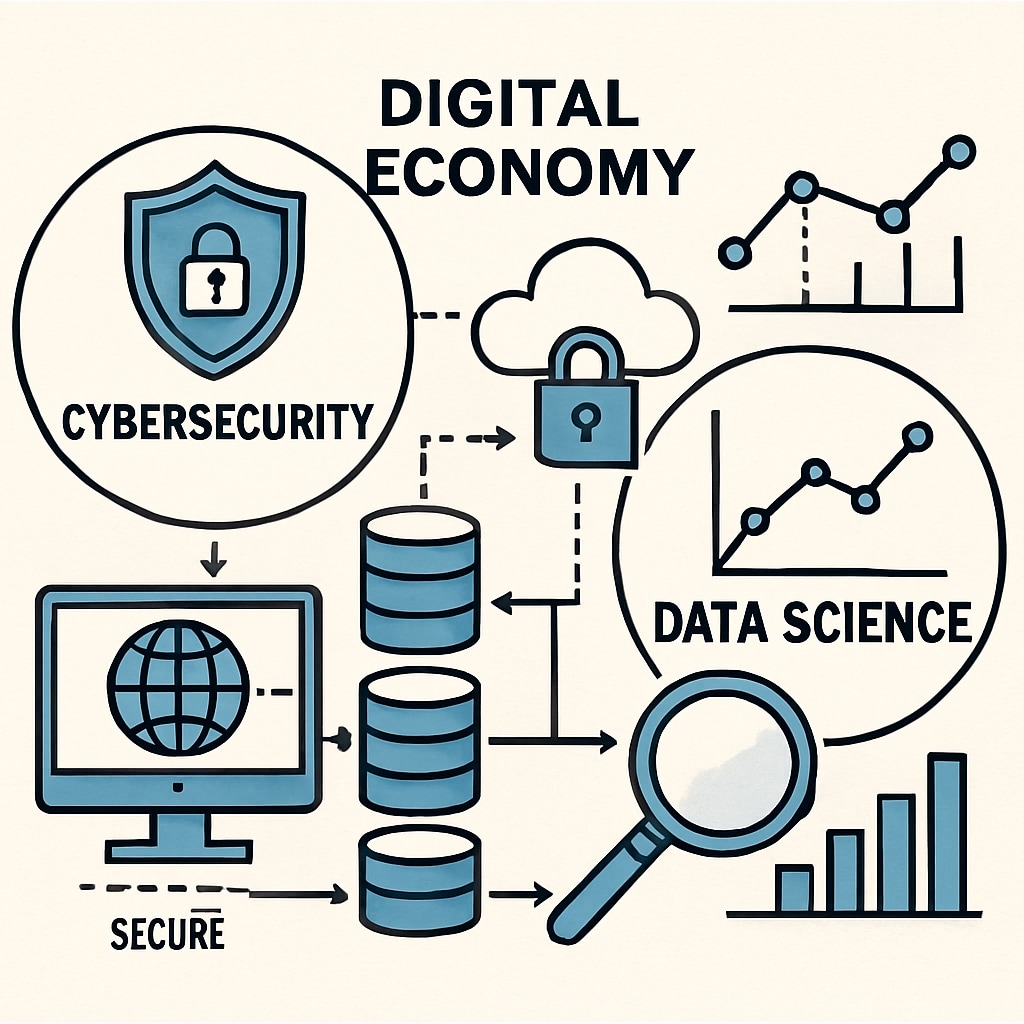In the rapidly evolving digital age, cybersecurity, data science, and career opportunities are gaining unprecedented significance. These fields are not only shaping the present but also defining the future of work. As the demand for skilled professionals in these areas grows, it is imperative to start cultivating interest and foundational skills early—in K12 education. This article delves into the career prospects of cybersecurity and data science, while highlighting how early education can play a pivotal role in preparing students for these dynamic fields.
Why Cybersecurity and Data Science Are Critical
Cybersecurity and data science have emerged as two of the most critical fields in the modern economy. Cybersecurity focuses on protecting digital assets, including sensitive information and networks, from cyber threats. In contrast, data science involves extracting meaningful insights from vast amounts of data to inform decision-making.
Globally, organizations face increasing risks from cyberattacks, with high-profile breaches affecting businesses, governments, and individuals alike. For example, according to Wikipedia’s cybersecurity overview, data breaches are projected to cost organizations trillions annually. Meanwhile, the role of data science in industries like healthcare, finance, and technology continues to expand, with firms leveraging data to drive innovation and business strategies.

Career Prospects in Cybersecurity and Data Science
Both fields offer lucrative and fulfilling career paths. Cybersecurity professionals, such as ethical hackers, security analysts, and chief information security officers (CISOs), are in high demand. Similarly, data science careers, including roles as data analysts, machine learning engineers, and data architects, provide opportunities to work on cutting-edge technologies.
The U.S. Bureau of Labor Statistics (BLS) predicts a 35% growth in information security jobs between 2021 and 2031, significantly outpacing the average for all occupations. On the other hand, data science careers are expected to grow by 36% over the same period, highlighting the expanding need for expertise in data-driven decision-making.
Key industries hiring for these roles include:
- Cybersecurity: Finance, healthcare, government, and tech sectors
- Data Science: Retail, manufacturing, education, and artificial intelligence development
The earning potential also reflects the importance of these fields. For instance, cybersecurity analysts earn an average annual salary of $103,590, while data scientists make around $100,910, according to the BLS.
The Role of K12 Education in Building Digital Talent
To prepare students for these high-demand careers, it is crucial to introduce cybersecurity and data science concepts during their formative years. K12 education can serve as the foundation for cultivating the skills and curiosity needed to succeed in these fields.
Here are some strategies schools and educators can adopt:
- Introduce coding and programming courses to familiarize students with fundamental technological concepts.
- Provide hands-on experiences with cybersecurity simulations and data analysis projects.
- Incorporate STEM (Science, Technology, Engineering, and Math) initiatives to enhance problem-solving and critical thinking skills.
- Partner with industry experts to offer workshops and guest lectures on real-world applications.
Moreover, organizations like the Computer Science Education Association advocate for integrating computational thinking and ethical considerations into K12 curricula, ensuring students develop both technical expertise and moral awareness.

Looking Ahead: Preparing for a Digital Future
As we navigate an increasingly digital world, the importance of cybersecurity and data science will only continue to grow. By equipping students with essential skills early on, K12 education can bridge the gap between academic learning and industry needs, ensuring students are prepared for the challenges and opportunities of the future.
Parents, educators, and policymakers must collaborate to support initiatives that prioritize technology education. After all, the next generation of cybersecurity experts and data scientists will be the ones to safeguard and innovate the digital landscapes we rely on every day.
In conclusion, cybersecurity and data science are not just career choices—they are vital to the functioning of modern society. By fostering early engagement and providing the right educational resources, we can empower young learners to thrive in these fields and shape a secure, data-driven future.
Readability guidance: This article has utilized short paragraphs for clarity, included transition words for a smooth reading flow, and incorporated lists to summarize key points. The use of authoritative sources and examples strengthens the content’s reliability and relevance.


